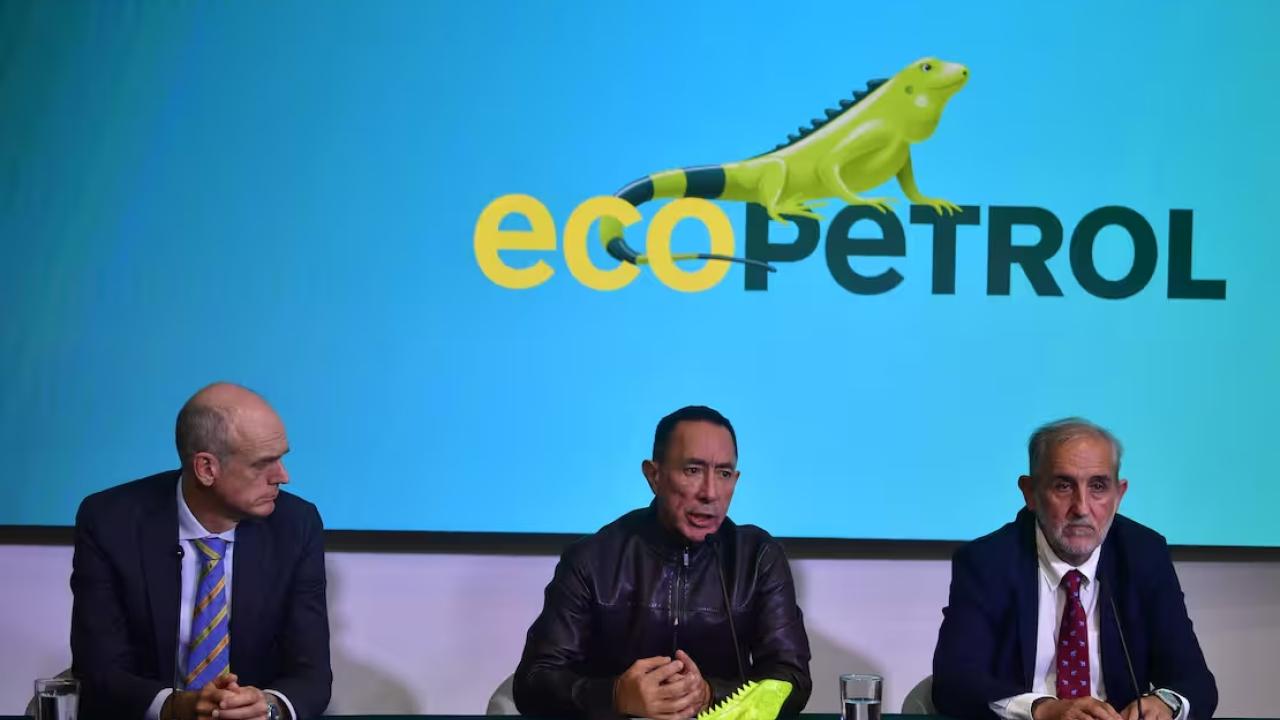
Ecopetrol will remain with a 'BB+' rating on the Standard & Poor's ratings index. However, the rating agency downgraded the oil company's financial profile due to increased debt, less autonomy in corporate governance, and higher-than-expected dividend payments in 2024.
S&P Global Ratings announced that Ecopetrol will maintain its 'BB+' rating, but warned that the company faces increased financial pressure.
In a statement released on Wednesday, June 4, S&P reported that it had indeed lowered the state-owned oil company's standalone credit profile, a move that broadly reflects concerns about its debt.
WHAT DID S&P SAY ABOUT ECOPETROL?
Among the reasons behind the rating, S&P highlighted that Ecopetrol increased its debt level and paid dividends of $15.6 trillion (US$3.793 billion) in 2024, which represented more than 100% of its profits. This amount also exceeded the range established by the company's own financial policy.
According to the rating agency, this payment was intended to support the Fuel Price Stabilization Fund (FEPC), which reduced the scope for other investments.
Another point highlighted by S&P is the lack of independence on Ecopetrol's board of directors. According to the rating agency, several of the new members have prior ties to government entities, which diminishes the company's autonomy vis-à-vis its main shareholder (the State), which holds an 88.49% stake.
As a result of these factors (increased debt, high dividend payouts, and reduced independence), S&P decided to downgrade Ecopetrol's standalone credit profile, a measure that assesses the company's financial strength.
S&P also noted that, although debt indicators could remain higher than expected in the coming years, Ecopetrol maintains "adequate" liquidity and has access to financing in local and international markets.
Along the same lines, the rating agency's analysis indicates that the oil company is not expected to issue new debt to cover operating or growth expenses.
THE POSITIVE
Despite this warning sign, Standard & Poor's highlighted positive aspects of the company's operating performance.
In 2024, Ecopetrol will reach its highest production level since 2016, averaging 746,000 barrels of oil equivalent per day. It also maintains a strategy focused on diversifying its revenues, strengthening its reserves, and advancing the energy transition.
Currently, the subsidiary ISA represents approximately 18% of the group's consolidated EBITDA. This company continues to invest in electrical infrastructure, energy storage, and road projects in Latin America, providing stability to the group's revenues.
WHY DID ECOPETROL'S CREDIT PROFILE DROP?
Although Ecopetrol's overall rating remained at 'BB+', S&P Global Ratings lowered its standalone credit profile (SACP) from 'bbb-' to 'bb+'.
This measure reflects the greater financial risk the company would face if it did not have the support of the Colombian state.
One of the key indicators that motivated this decision was the level of indebtedness.
At the close of the first quarter of 2025, adjusted net debt reached 2.4 times EBITDA, above the 2.0 times threshold the company considered acceptable.
According to the rating agency, this result is partly explained by a smaller-than-expected debt reduction and the extraordinary dividend distribution in 2024.
A LESS FAVORABLE ENVIRONMENT
In addition to internal factors, the rating agency took into account a less favorable macroeconomic environment for the oil sector in its analysis of Ecopetrol.
In its baseline scenario, S&P projects that the average price of Brent crude oil will fall to US$62.5 per barrel in 2025, a 26.5% drop from previous levels. This adjustment is due to weaker global economic growth and higher global oil inventories.
The firm also anticipates an increase in refining costs, driven by rising energy prices, as well as a stabilization of the exchange rate around $4,200 per dollar in 2025, following bouts of volatility that have impacted the company's profits.
For Colombia, the forecast includes 2.5% GDP growth in 2025 and 4.4% inflation, implying relatively stable domestic demand, especially for fuels. Ecopetrol is expected to continue exporting part of its production to markets such as Asia and the United States.
Finally, the rating agency noted that Ecopetrol's rating is tied to Colombia's sovereign rating. Therefore, the oil company's negative outlook also reflects the country's macroeconomic environment.
Therefore, if the country's rating falls, the same could happen to Ecopetrol's, even if its own indicators do not worsen.









